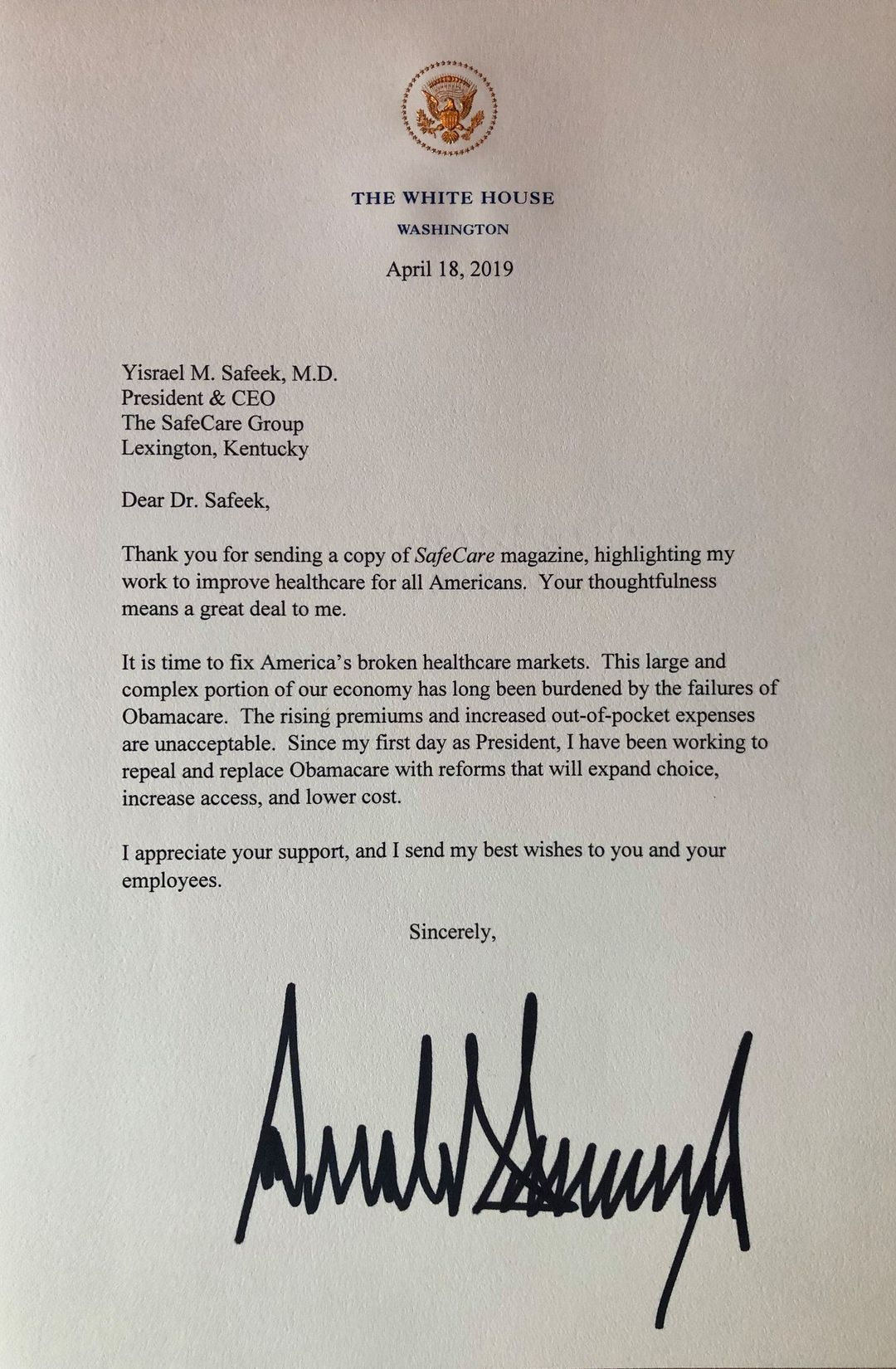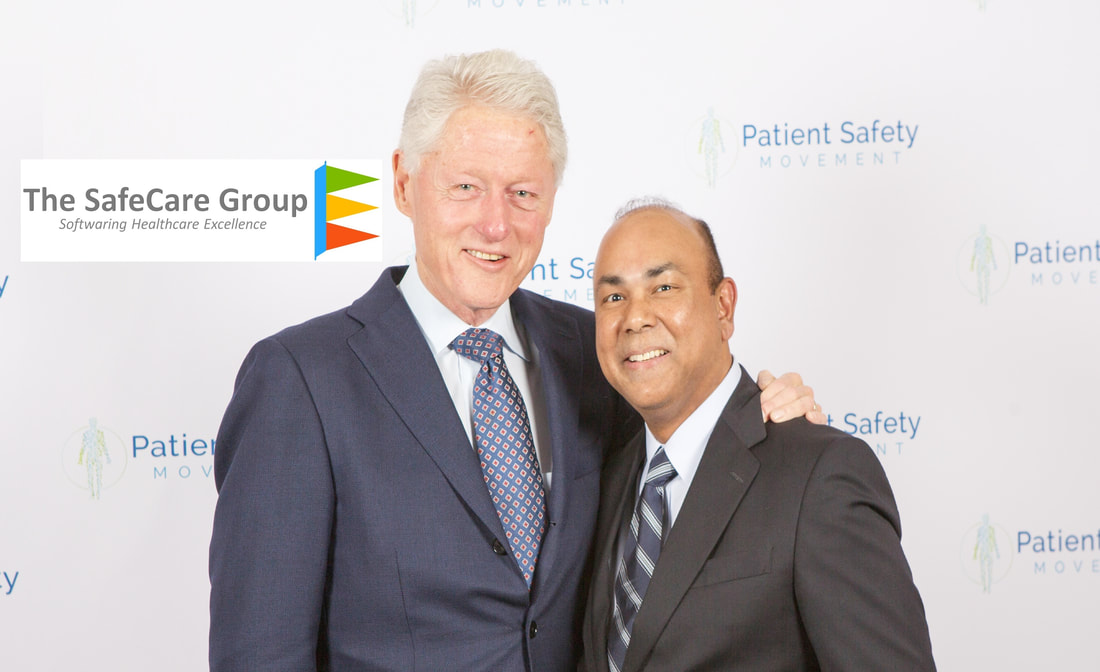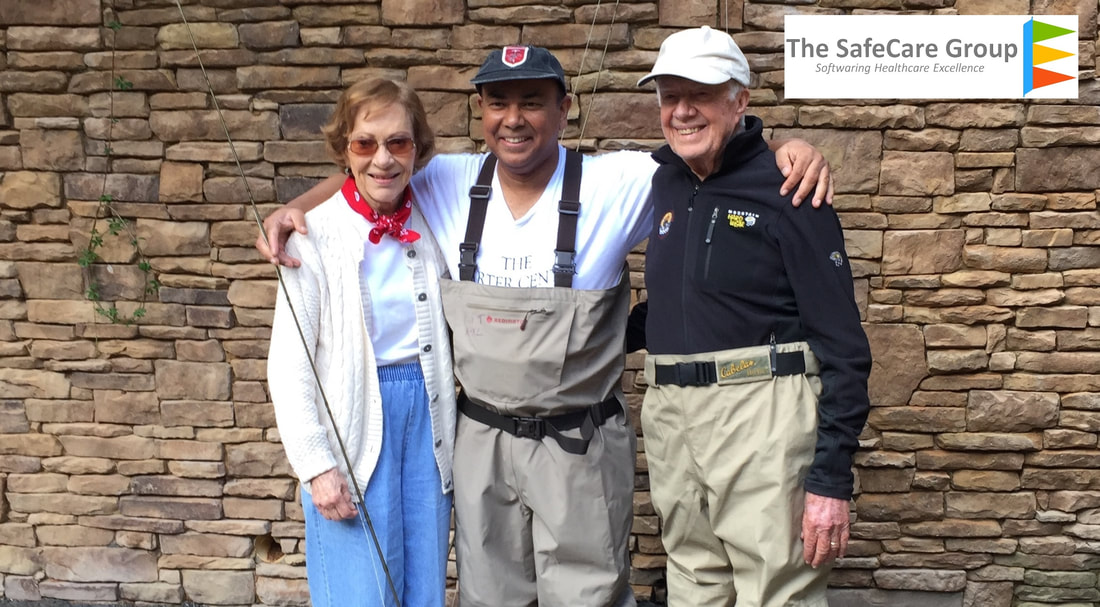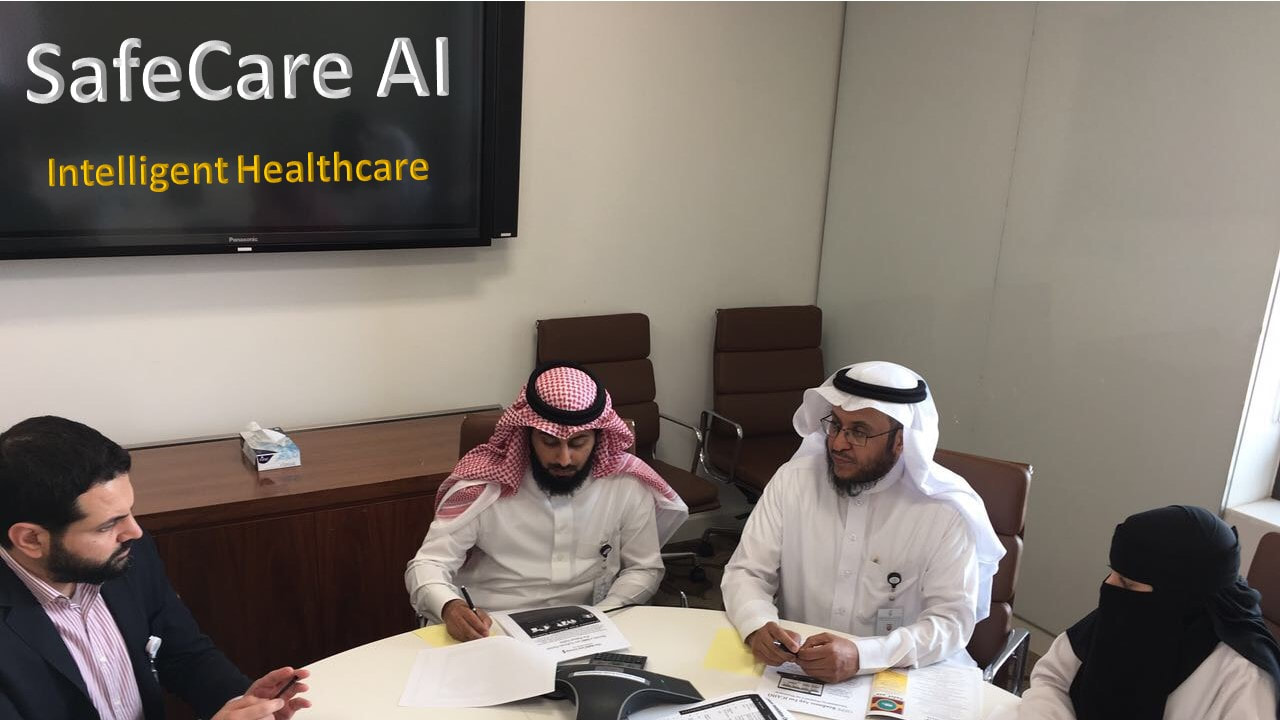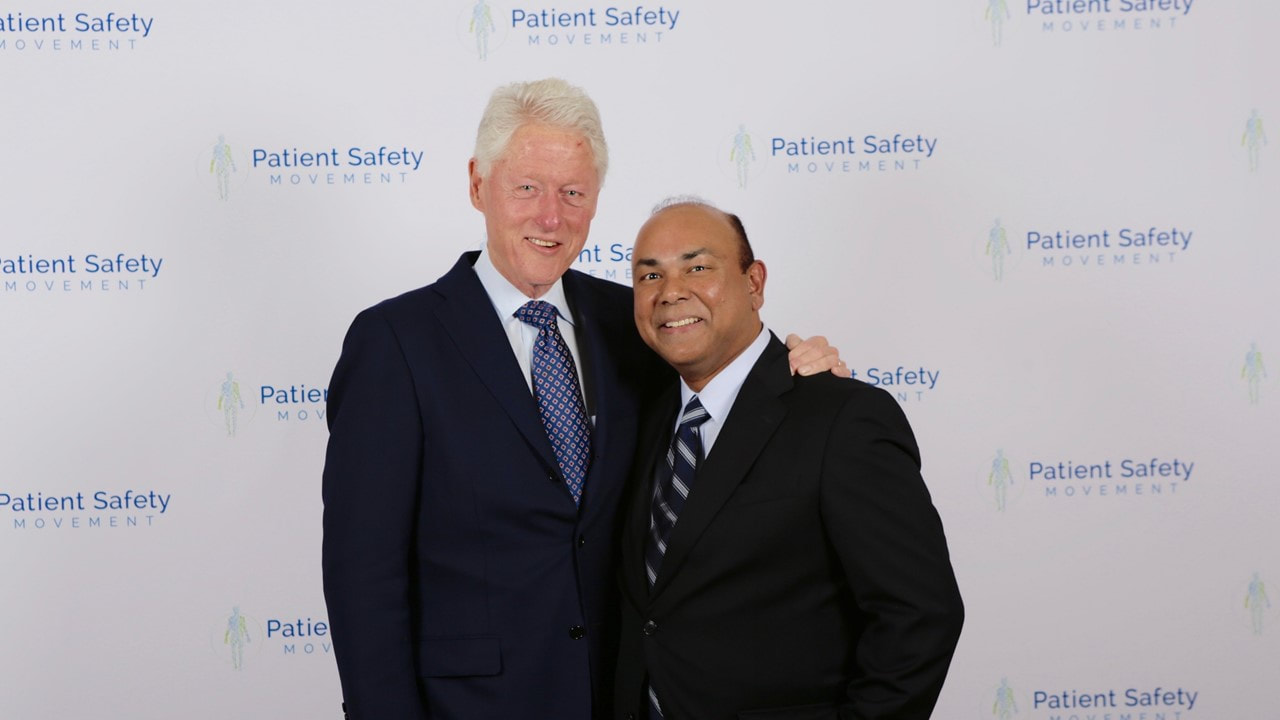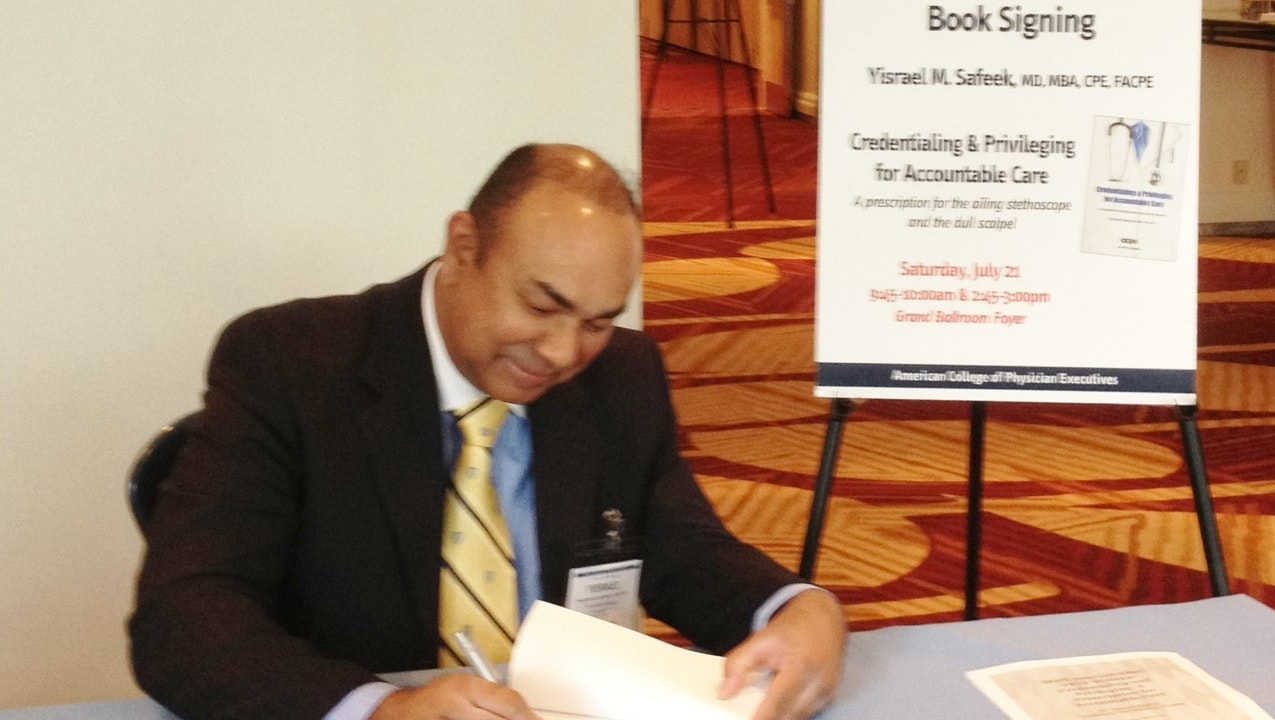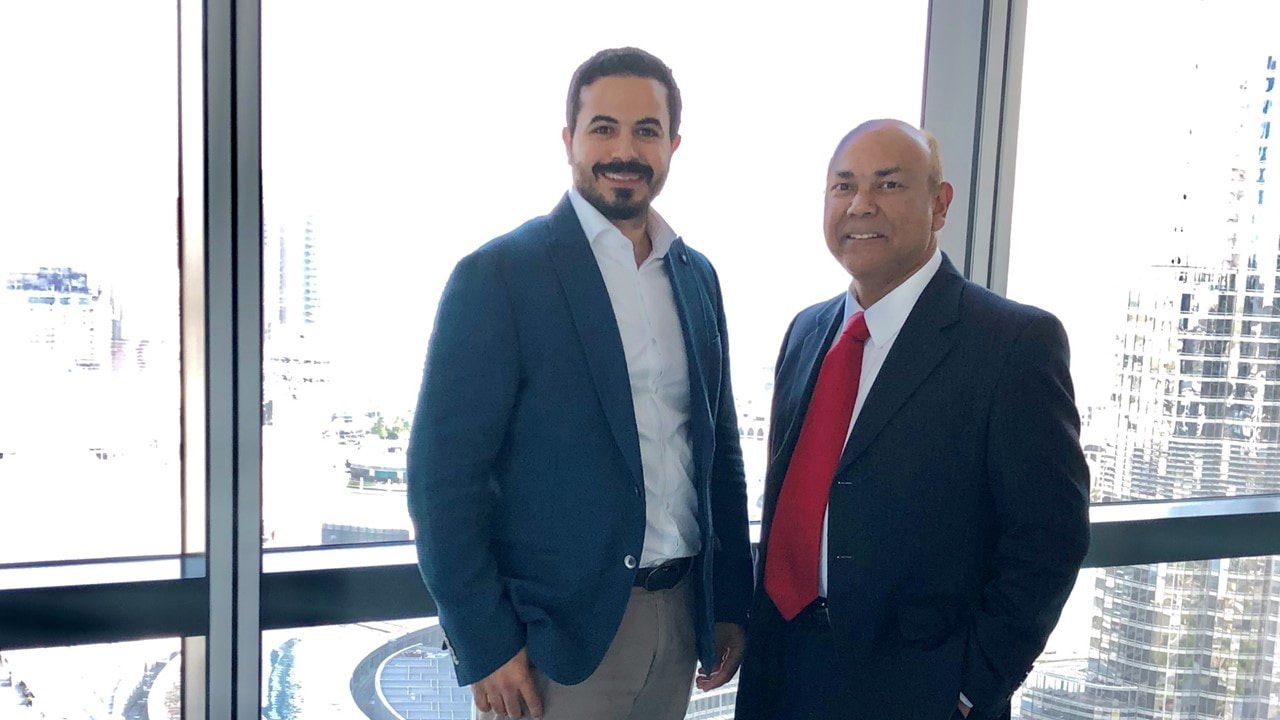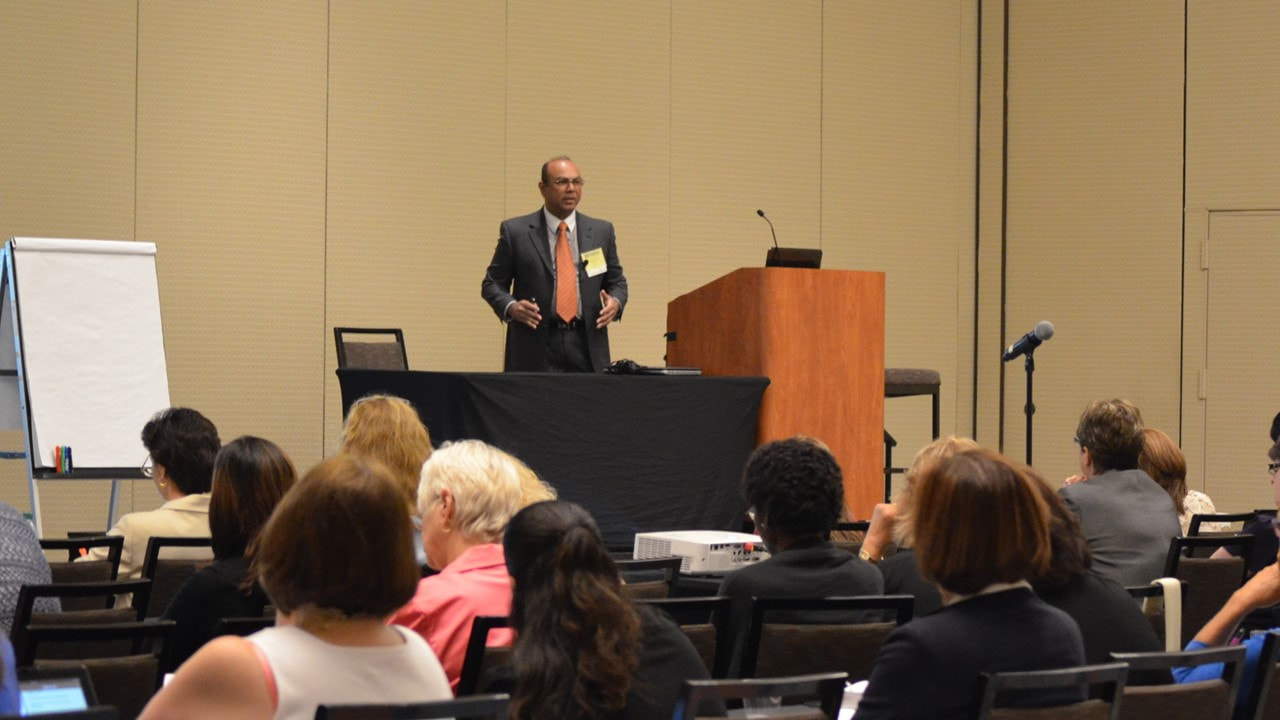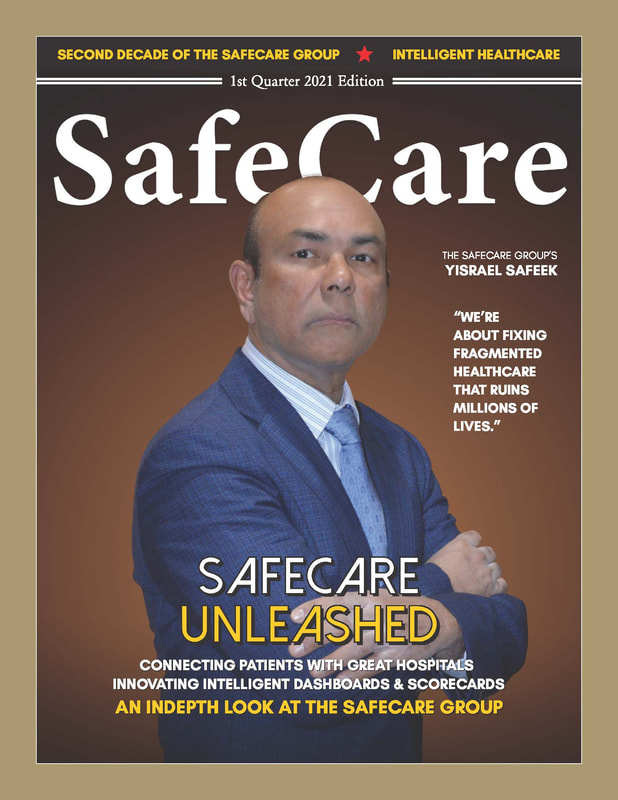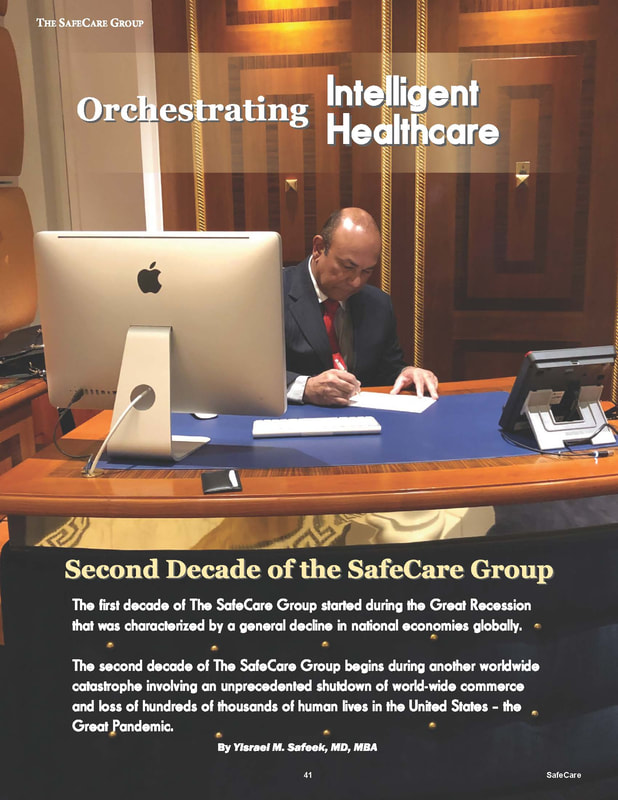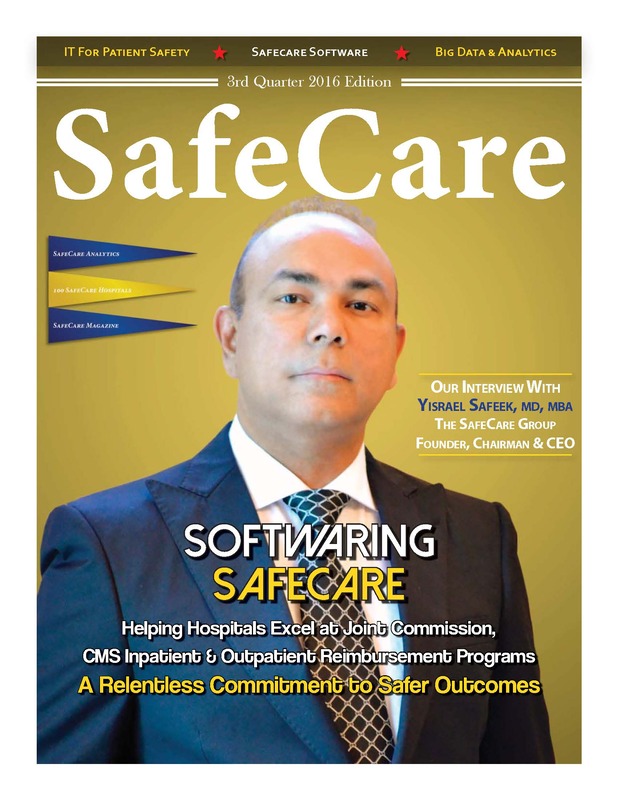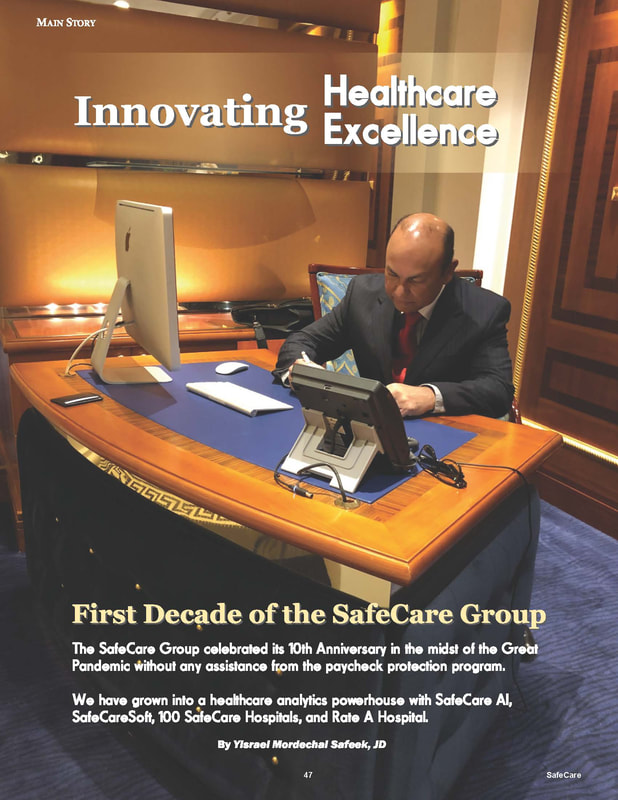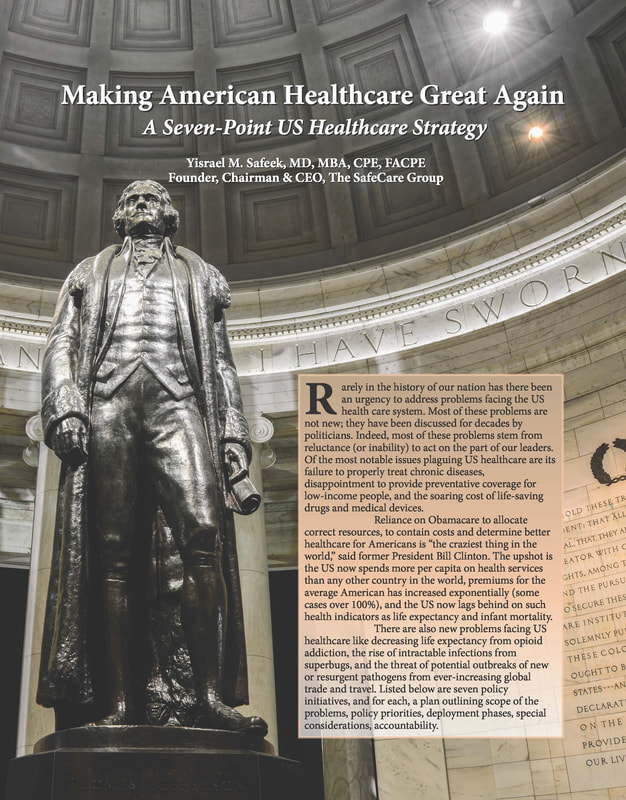Yisrael M Safeek, MD, MBA, FACPE
Founder, Chairman & CEO
Founder, Chairman & CEO
President Trump's Letter
Rarely in the history of our nation has there been an urgency to address problems facing the US healthcare system. Most of these problems are not new; they have been discussed for decades by the all-talk, do-nothing politicians.
Making American Healthcare Great Again is a seven-point healthcare policy strategy. The “IT IS ACE” strategy addresses seven urgent national policy initiatives that should be implemented by Health and Human Services for the benefit of the American people.
Each letter in the “IT IS ACE” strategy title corresponds to a major policy initiative. For each policy initiative, there is an outline of the Scope of the Problem; Policy Priorities; Deployment Phases; Special Considerations; and Accountability.
Yisrael Safeek, MD, MBA, SafeCare, 4th Quarter 2017
Making American Healthcare Great Again is a seven-point healthcare policy strategy. The “IT IS ACE” strategy addresses seven urgent national policy initiatives that should be implemented by Health and Human Services for the benefit of the American people.
Each letter in the “IT IS ACE” strategy title corresponds to a major policy initiative. For each policy initiative, there is an outline of the Scope of the Problem; Policy Priorities; Deployment Phases; Special Considerations; and Accountability.
Yisrael Safeek, MD, MBA, SafeCare, 4th Quarter 2017

